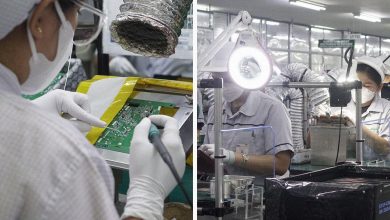by Regina Layug Rosero
In the not-so-distant future, there’s a big chance that money will lose its power and currency transactions will be done using Bitcoin.
MANILA – Literature, movies and TV shows are full of fictional currency, invented in the far future or the distant past, named after imaginary rulers and lands. But in the short-lived show Almost Human, transactions are paid in Bitcoin. That’s real world currency.
So what is it?
According to John Bailon, co-founder and CEO of Satoshi Citadel Industries, Bitcoin’s technology was invented by Satoshi Nakamoto in 2009. Nobody knows who he really is, but “he published the code of this revolutionary technology for free. No person or company owns Bitcoin–it’s like the Internet.” It’s not tied to any country, either.”
Entrepreneur Luis Buenaventura explains, “Bitcoin exists without the need for government or a central authority, so it’s truly the world’s first peer-to-peer digital money. Other forms of digital money have existed before, but they were created by private organizations who controlled their respective micro-economies, and these eventually collapsed. Bitcoin was designed to resist being controlled by any large entity, and its value is decided purely by the open market.”
Buenaventura says in a sense it’s just like regular money, which you earn “by working for it, or by selling goods in exchange for it.” In the same way that you buy foreign currency from banks and forex shops, “You can buy Bitcoin at services like BuyBitcoin.ph or at a Bitcoin ATM in Makati,” says Bailon.
Unlike paper money though, you can earn Bitcoin through your computer, by “mining”. Using special software, you solve complex math problems and are issued a certain number of bitcoins in exchange. CNN Money says, “Currently, a winner is rewarded with 25 bitcoins roughly every 10 minutes.” For security, there’s a public ledger called the “blockchain,” which is used to verify transactions.
Bitcoin is not an infinite resource. According to bitcoin.org, “Bitcoin is unique in that only 21 million Bitcoins will ever be created. However, this will never be a limitation because transactions can be denominated in smaller sub-units of a Bitcoin, such as bits – there are 1,000,000 bits in 1 Bitcoin. Bitcoins can be divided up to 8 decimal places (0.00000001) and potentially even smaller units if that is ever required in the future as the average transaction size decreases.”
What does that mean in peso terms? Bailon explains, “You can own as little as Php 1.00 worth of Bitcoins, which is around 0.000093 BTC right now. In fact, you can own some Bitcoin that isn’t even worth 1 centavo, because the lowest Bitcoin denomination is 0.00000001 BTC or 1 Satoshi.” To find out the exchange rate for peso to Bitcoin, just Google “1 Php to BTC”.
How do you use it?

Most banks now have an app for your smartphone, for bills payment, funds transfer and other transactions. Bitcoin is much the same. Bailon enthuses, “It’s very easy to use! You just download an app, and load it up with Bitcoins. Sending it is as easy as sending an email.”
And just like banks, transactions incur fees. But Buenaventura says, “When you are paid in Bitcoin, the transaction fees are less than Php 3, no matter the amount. The bad news is that you often need to trade that Bitcoin for pesos if you want to spend it, [so] you incur some costs. In practice you lose about 1%. That’s still not a bad deal compared to PayPal or bank wire transfers.” Companies like Microsoft, Dell and Overstock.com already transact in Bitcoins.
Currency of the future?
Bitcoin sounds like currency straight out a dystopian future. Bailon says, “In the future, expect to have your land titles, personal identification and even marriage certificates all using some form of Bitcoin technology.”
Some have even suggested that someday, Bitcoin could be used as a single universal currency. But Scott Si of Coins.ph isn’t so sure. “We don’t see Bitcoin as a replacement to fiat currency or the existing financial system. Rather, it serves to augment it. The current banking system relies on physical and IT infrastructure that is just too expensive to serve most people, who in contrast, have little or no savings. By providing a more efficient way to transfer value and reduce the reliance on cash, Bitcoin can save costs for government, banks, and end consumers. In effect, this will also increase the number of people that can be banked.”
“If you look at Coins.ph as an example of a [Blockchain] service, we serve as a low-cost, low-commitment gateway for these people who urgently need basic financial services and who could eventually become banking customers themselves. It only takes 30 seconds to create an account on your mobile phone, after which you could pay bills, top up your phone, and send funds to anyone, anywhere. We’re essentially extending the reach of financial institutions to a market they previously cannot serve.”
Controversy

Bitcoin has its fair share of detractors, controversy, and abuse. Says Si, “The emergence of Bitcoin made possible the exchange of value between any two people on the planet without any intermediaries. Those who cared the most about user anonymity were unfortunately (and expectedly) the first ones to gravitate towards this use case. When you step back and look at the bigger picture however, you’ll see that Bitcoin is no different from any other breakthroughs in history, in the sense that social deviants were the first to discover the use cases and regulations often had to catch up with the technology.”
One of the biggest roadblocks Bitcoin hit was the Silk Road debacle. It was designed by surfer-scientist Ross Ulbricht to be “a new kind of online market, where people could buy all the things that aren’t available on ordinary online markets”. Ulbricht used Tor software for the website, so that users couldn’t be tracked. Then to facilitate payments without risk of leaving a trail, he used Bitcoin. Why all the secrecy? Because Silk Road was an online shop for drugs like LSD, mescaline and ecstasy. The FBI got involved, and the site was shut down in October 2013.
Says Si, “After the Silk Road debacle, the industry has taken great strides to focus on more common use cases and more strictly observe KYC (know-your-customer) and AML (anti-money-laundering) regulations. Silk Road was a rite of passage of sorts, a turning point that led to more mature and responsible use of the technology. It is only by serving customers responsibly and operating in line with local laws and regulations that Blockchain can truly move forward and reach its full potential.”
Bitcoin in the Philippines
Though Bitcoin is less than ten years old, it’s already here in the Philippines. Says Bailon, “The first ever Philippine Bitcoin company started in December 2013, called BuyBitcoin.ph. This company offered buy and sell services and has since merged with our company, Satoshi Citadel Industries.”
Buenaventura says there are few local businesses trading in Bitcoin. “It’s a niche technology right now and it doesn’t seem like it will be significantly more mainstream in the near future. Bitcoin is great for moving monetary value from one country to another but currently it’s difficult to use it as an everyday currency.”
With the speed at which technology is evolving, all that may change in the next ten, maybe even five years. Whatever the case, Bitcoin is definitely technology worth watching.
This article was first published in the September-October 2015 issue of adobo magazine.










